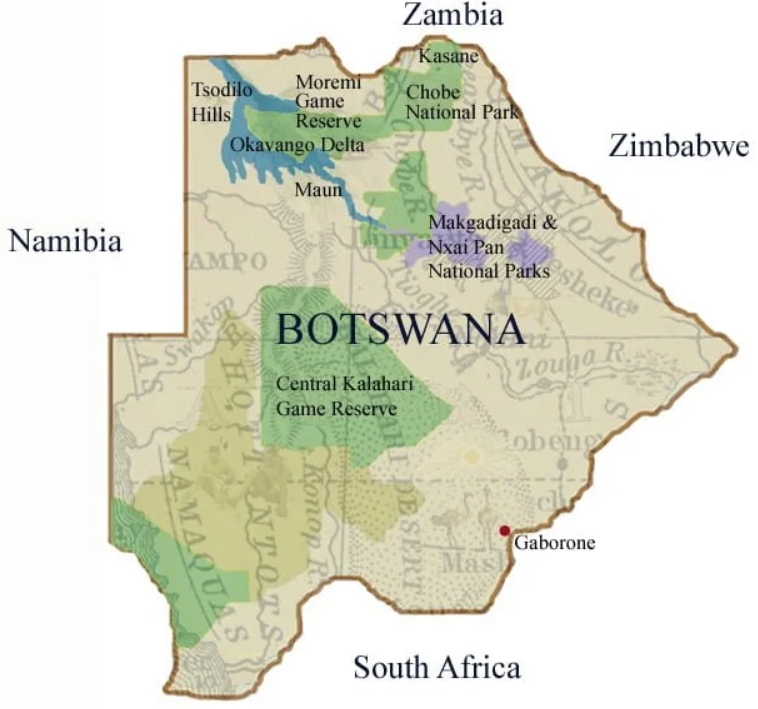Exploring Botswana's Geography

Botswana, a landlocked country in Southern Africa, boasts a unique and diverse geography that contributes to its status as one of Africa's most sought-after safari destinations. Let's explore the key features that make Botswana's landscape so special.
Key Geographical Features
- Total Area: 581,730 square kilometers (224,607 square miles)
- Borders: South Africa, Namibia, Zimbabwe, and Zambia
- Terrain: Predominantly flat, with gentle undulations and occasional rocky outcrops
- Lowest point: Junction of the Limpopo and Shashe Rivers (513 meters above sea level)
- Highest point: Tsodilo Hills (1,489 meters above sea level)
Major Geographical Regions
Botswana's geography can be divided into several distinct regions:
Kalahari Desert
Covering about 70% of Botswana's land area, the Kalahari is a vast sandy savanna that dominates much of the country's geography.
Okavango Delta
A unique inland river delta system, the Okavango is one of the world's largest inland deltas and a UNESCO World Heritage site.
Makgadikgadi Pans
These expansive salt pans in northeastern Botswana are the remnants of an ancient lake and create a surreal, moon-like landscape.
Chobe National Park
Located in northern Botswana, this park is known for its diverse landscapes, including floodplains, forests, and the Chobe River.
Climate
Botswana has a semi-arid climate characterized by hot summers and mild winters. The country experiences distinct wet and dry seasons:
- Dry season: May to October
- Wet season: November to April
Annual rainfall varies from about 250mm in the southwest to 650mm in the northeast. The Kalahari Desert experiences extreme temperature variations, with summer highs reaching 40°C (104°F) and winter nights occasionally dropping below freezing.
Water Resources
Despite its arid climate, Botswana has several important water resources:
- Okavango River: Forms the famous Okavango Delta
- Chobe River: A major tributary of the Zambezi River
- Limpopo River: Forms part of the border with South Africa
- Numerous smaller rivers and streams that are often seasonal
Impact on Wildlife and Ecosystems
Botswana's diverse geography supports a wide variety of ecosystems and wildlife. The country is home to large populations of African elephants, lions, leopards, cheetahs, and numerous antelope species. The Okavango Delta, in particular, is a biodiversity hotspot, supporting countless species of birds, mammals, fish, and plants.
Conservation Efforts
Recognizing the importance of its unique geography and ecosystems, Botswana has dedicated approximately 38% of its land to national parks, game reserves, and wildlife management areas. This commitment to conservation has helped preserve the country's natural heritage and support its thriving ecotourism industry.